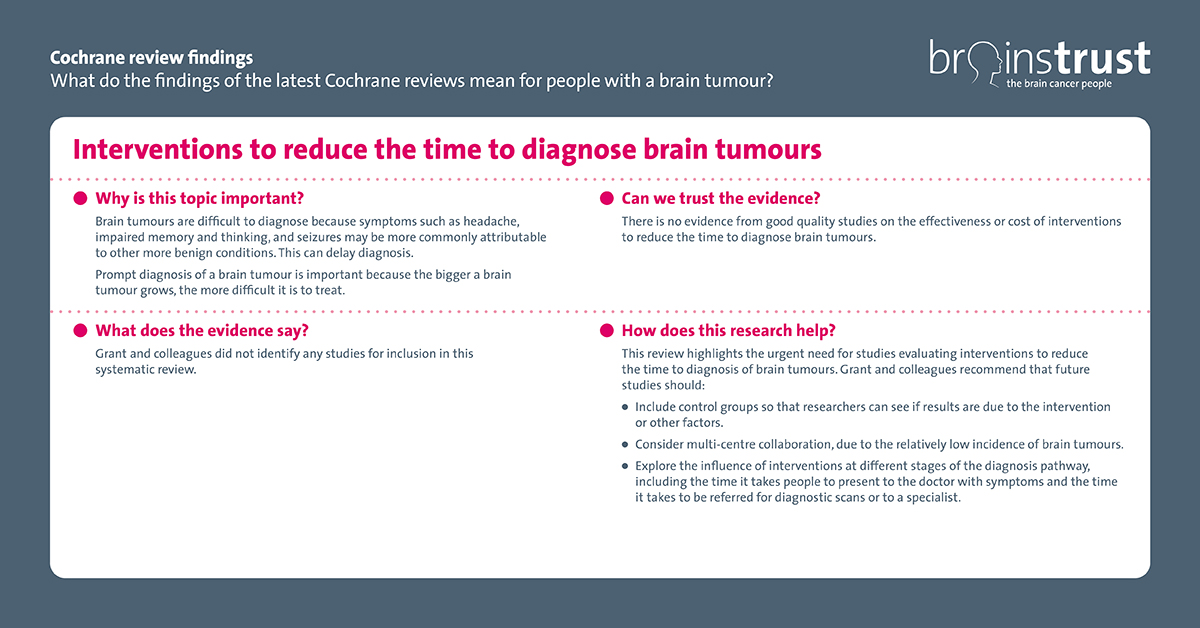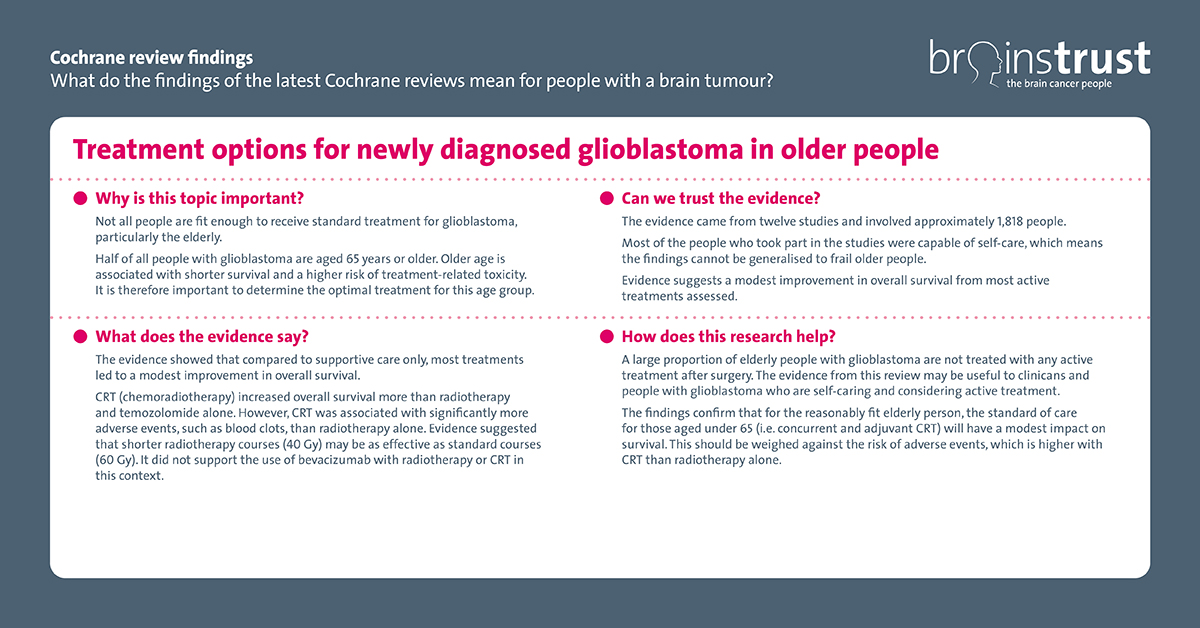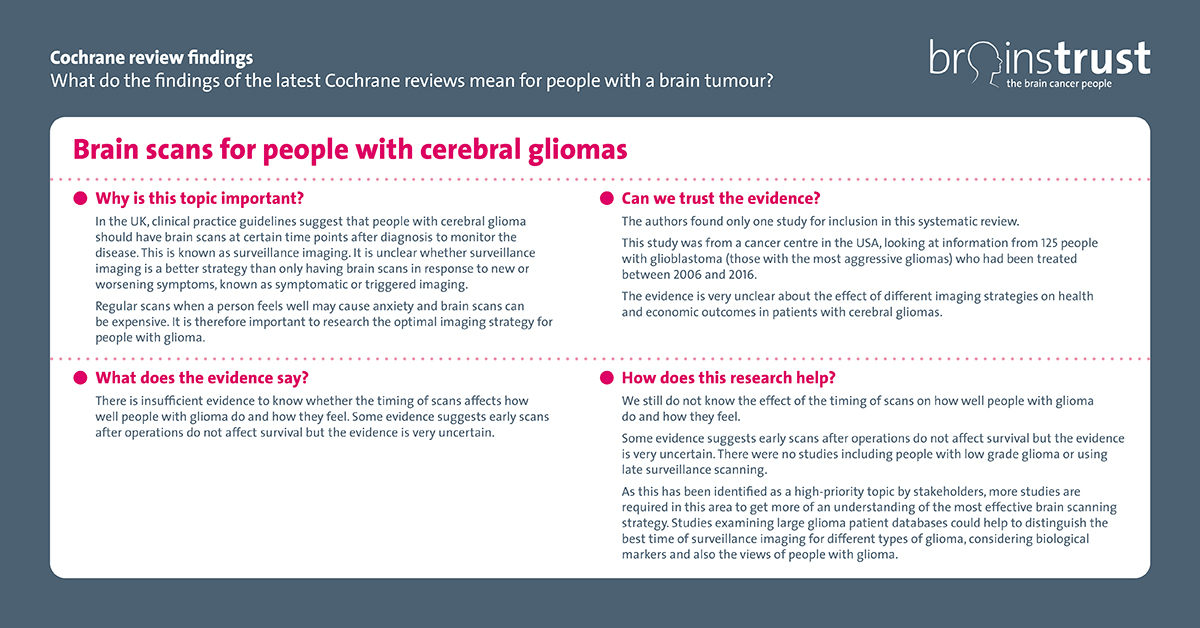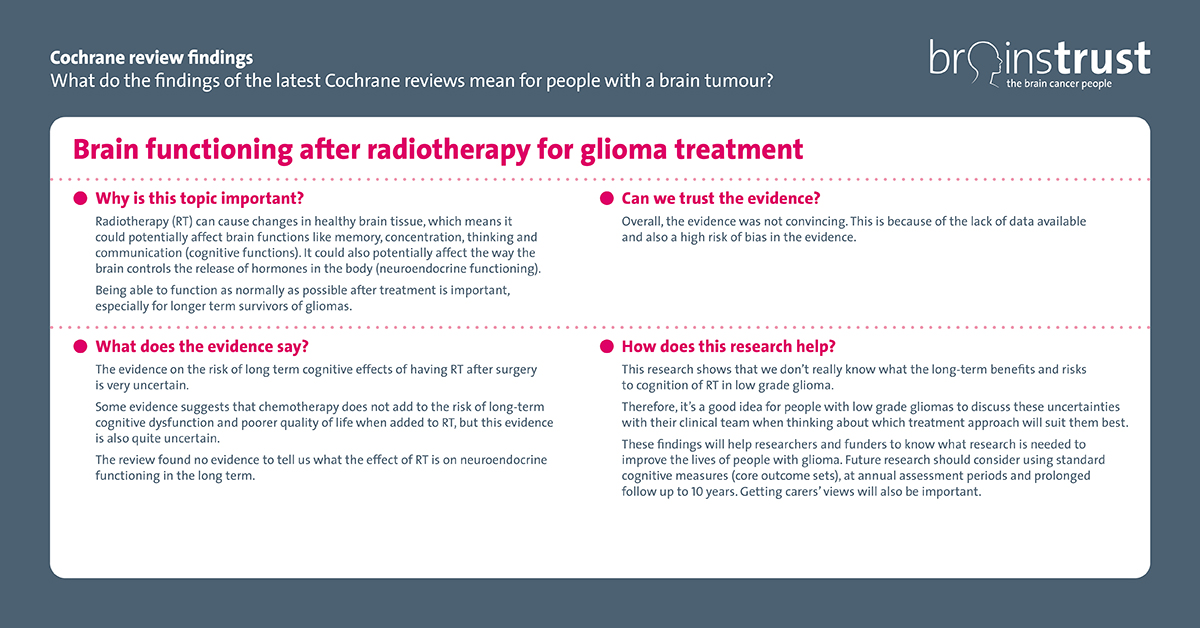Cochrane Special Collection findings
The Cochrane Special Collection, comprising of systematic reviews of research into brain tumour diagnosis and treatment, were published today. Read about the significance of this collection and the years of collaborative effort that made it possible, here.
The findings of the reviews can be categorised into three broad research areas, representing the interests and concerns of people with a brain tumour:
- How do I get a prompt, safe and accurate diagnosis?
- Shared decision making and risk sharing in glioma
- Understanding the best treatment when decisions are difficult
How do I get a prompt, safe and accurate diagnosis?
Many people feel that if they or their loved one had been diagnosed with a brain tumour earlier, then outcomes might have been different. However, diagnosing a brain tumour is complex and there are benefits and harms of early detection and treatment.

Shared decision making and risk sharing in glioma
Shared decision making and weighing up the pros and cons of treatment helps people to reframe problems and generate insights.
Our experience is that researchers and clinicians sometimes focus on overall survival and progression-free survival; patients focus on quality of life, function, and symptom relief. Using shared decision-making allows everyone to become co-pilots in their care, so that we see a new model of maintenance of wellness as well as treatment of illness.
We tell the people we support whenever this topic is mentioned: Clinicians are the expert on the options available to you, and you are the expert on you: your context, appetite for risk and your values.
Understanding the best treatment when decisions are difficult
There comes a point in the brain tumour pathway where a malignant brain tumour will come back. This may mean that new decisions need to be made at a time when emotions are high, and hope needs to be nurtured when the future looks bleak. At the moment there is no clear protocol for what to do when first line treatment fails so having the evidence review for recurrence gives potential for a transformative conversation about options going forward.

brainstrust co-founder and Director of Policy and Services Dr Helen Bulbeck and Consultant Neurologist Dr Robin Grant talk about how this 8 year collaboration brings research closer to people with a brain tumour in our latest YouTube video – click here to watch.










